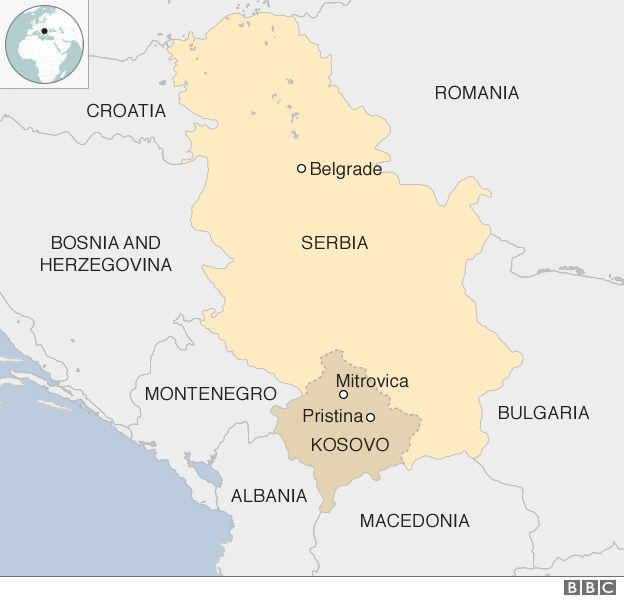
Why is there trouble in Kosovo again?
Clashes broke out on May 29 between Serbs in North Kosovo and the NATO-led Kosovo force (KFor)
Why is there trouble in Kosovo again?
• Story?
Clashes broke out on May 29 between Serbs in North Kosovo and the NATO-led Kosovo force (KFor)
• What are the roots of the conflict?
Both Kosovo and Serbia lie in the Balkans, a region made up of countries of erstwhile Yugoslavia.
Kosovo, earlier a Serbian province, declared itself independent in 2008. However, Serbia continues to consider it a part of itself, despite having no administrative control over it.
It had gained Kosovo in the 12th century before losing it for 500 years to the Ottoman Empire in the 1389 Battle of Kosovo. Hence, overtime Kosovo became a majority ethnic Albanian region with Muslims. So when after the Second World War it was made an autonomous province of Serbia, the majority population was against it.
Since the 1980s Kosovo Albanians began to seek separation from Serbia through various rebellions. Finally in 1999, NATO intervened and forced Serbia to pull out of Kosovo. Subsequently, through a UNSC Resolution 1244 a transnational UN-led administration began to head Kosovo. In 2008, it declared independence from Serbia.
• Relations between the countries since then?
Currently, an ethnic Serb minority of more than 50,000 resides in Northern Kosovo, bordering Serbia. The Kosovo Serbs do not recognise Kosovo state institutions, receive pay and benefits from Serbia's budget and pay no taxes either to Pristina or Belgrade.
Since 2008, clashes have broken out on and off in Kosovo's northen region. Meanwhile, Kosovo cannot become a UN member without Serbia's approval as it has its diplomatic allies in Russia and China who would veto such a decision.
In 2013, the two reached the Brussels Agreement brokered by the EU. The agreement was not fully implemented on the ground, however it led to participation of Serbs in municipal elections.
Since last year, violent clashes have again begun in the region on issues ranging from high tariffs on goods to blockades on entry points between Serbia and Kosovo.
• What prompted the recent clashes?
In April, Kosovo held mayoral elections in municipalities. These elections were boycotted by ethnic Serbs in the northern region, as a result of which ethnic Albanian mayors got elected in these municipalities. Them taking office in the Serb-majority area led to protests by the Serbs.
• What next?
The presidents of both sides met and Kosovo has indicated that a solution for de-escalation is close and that it is open to fresh elections in Serb dominant municipalities, provided they are held without Belgrade's interference.
